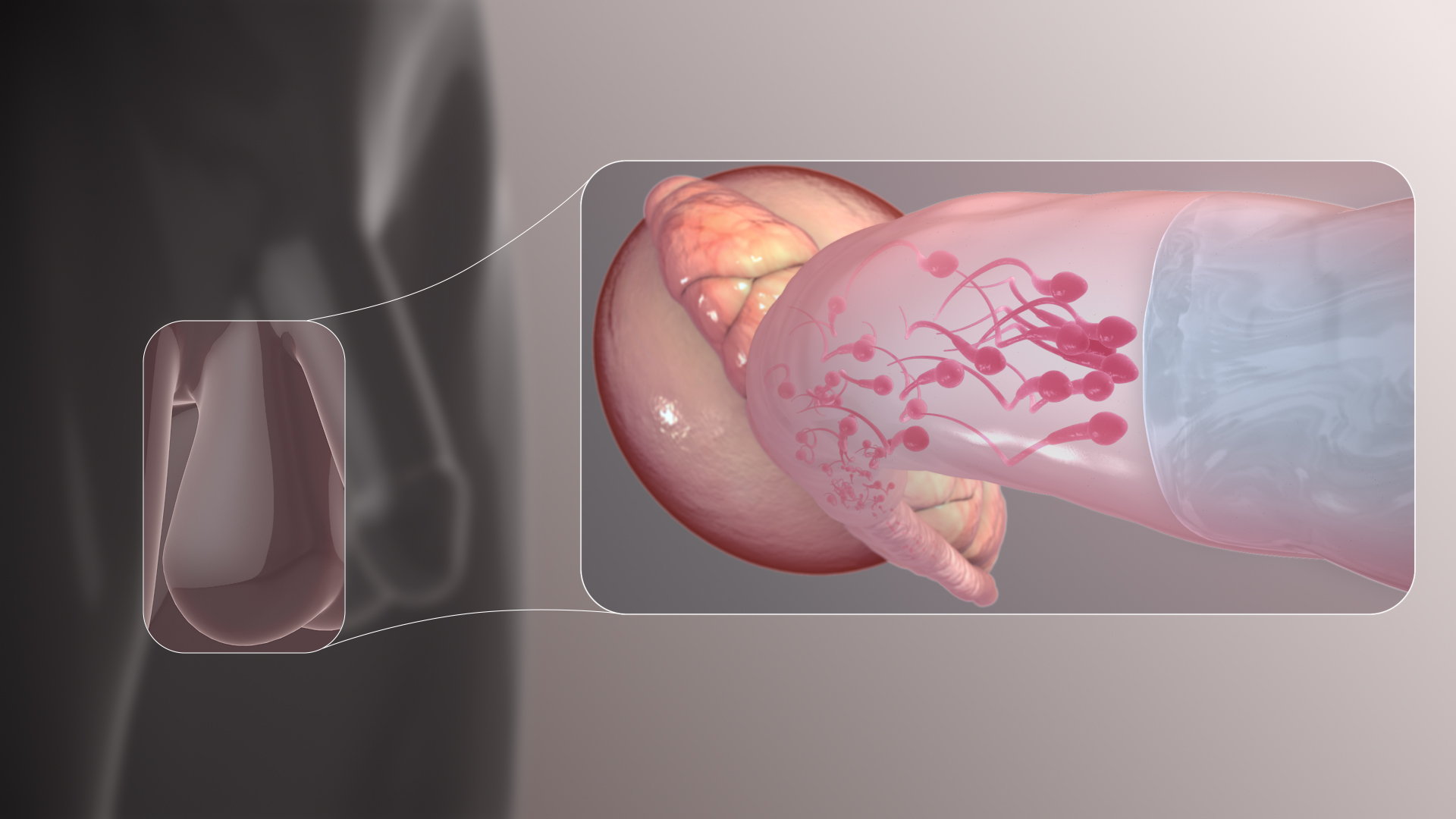Effective reproductive control has always been dependent on female contraceptive methods, including daily pills and long-acting products such as IUDs and implants. Male contraceptive options available so far have been limited to condoms and withdrawal (which are short-acting) or vasectomy (which is irreversible).
Finally it looks like a male contraceptive method that is non-surgical, non-occlusive and reversible is on its way.

Vasalgel: A new non-hormonal, long-acting option
Vasalgel is a high molecular weight polymer dissolved in dimethyl sulfoxide (DMSO), a biocompatible solvent. It works by stiffening to create a safe barrier for the sperms from the testes to the urethra before they're able to leave the body as ejaculate. Apparently fluids are able to pass slowly through the gel, reducing back-pressure on the epididymis (the sperm storage area), in contrast to what happens in case of vasectomy. Vasalgel is not designed to impair the swimming sperms; it merely blocks their path. The contraceptive effect of the polymer gel was also successfully "reversed" in a rabbit model as the material can be easily flushed out with a simple sodium bicarbonate solution, quickly resuming the normal sperm flow.
The initial research was carried out on 16 adult male rhesus monkeys who received intra-vas injections of Vasalgel. Post a week of recovery they were returned to outdoor group housing, which included 3-9 intact, breeding females with a successful reproductive history. The monkeys lived in social groups in a setting closer to a free-living environment.
The males were monitored for at least one breeding season. The study reported that there were no conceptions after Vasalgel injections. Minor complications were, however, reported including incorrect placement of the gel into the vas deferens and the development of a sperm granuloma in one animal. These complications were very few in comparison to the number of monkeys who underwent the procedure and were addressed using unilateral vasectomy. Histological examination in the removed testicle indicated that the presence of Vasalgel did not incite a localized inflammatory reaction (i.e., it was well-tolerated).
The findings in rabbits were similar, showing minimal tissue response to the presence of Vasalgel.
After Vasalgel proved to be an effective, safe and well-tolerated contraceptive in rabbits, a follow-up study was carried out that reported the results of reversing its contraceptive effect in the same rabbits. 7 rabbits, successfully contracepted for 14 months following Vasalgel implant, underwent a reversal procedure. A solution of sodium bicarbonate (baking soda) was injected into the vasa deferentia of each rabbit to dissolve the implants. Baking soda was used for its ability to neutralize acids and break down the hydrogel structure of the polymer. Sperm flow resumed almost instantly, as observed in the sperm count of semen of these animals.
The collected sperms (after reversal) were also evaluated for their characteristics, an important first step to a return of fertility. The concentration and motility was observed to be intact and matched the baseline levels. The sperm forward progression measurements were, however, lower than the baseline measurements but increased consistently in a period of 6 months of follow-up.
With proof of efficacy now published in monkeys and rabbits, preparations are on for the first clinical trial in humans. Parsemus Foundation, a non-profit organization based in Berkeley, California, aims for Vasalgel to be available worldwide.
References:
- The contraceptive efficacy of intravas injection of Vasalgel™ for adult male rhesus monkeys
- Male Birth Control Could Finally Take Shape As A Gel
- Successful reversal of Vasalgel male contraceptive in rabbits
You may also like
Women Health Issues: Reproductive System Disorders
A female reproductive system consists of ovaries, fallopian tubes, uterus, vagina, cervix, external genitals and each of these parts is susceptible to diseases that can affect fertility. Read More..








